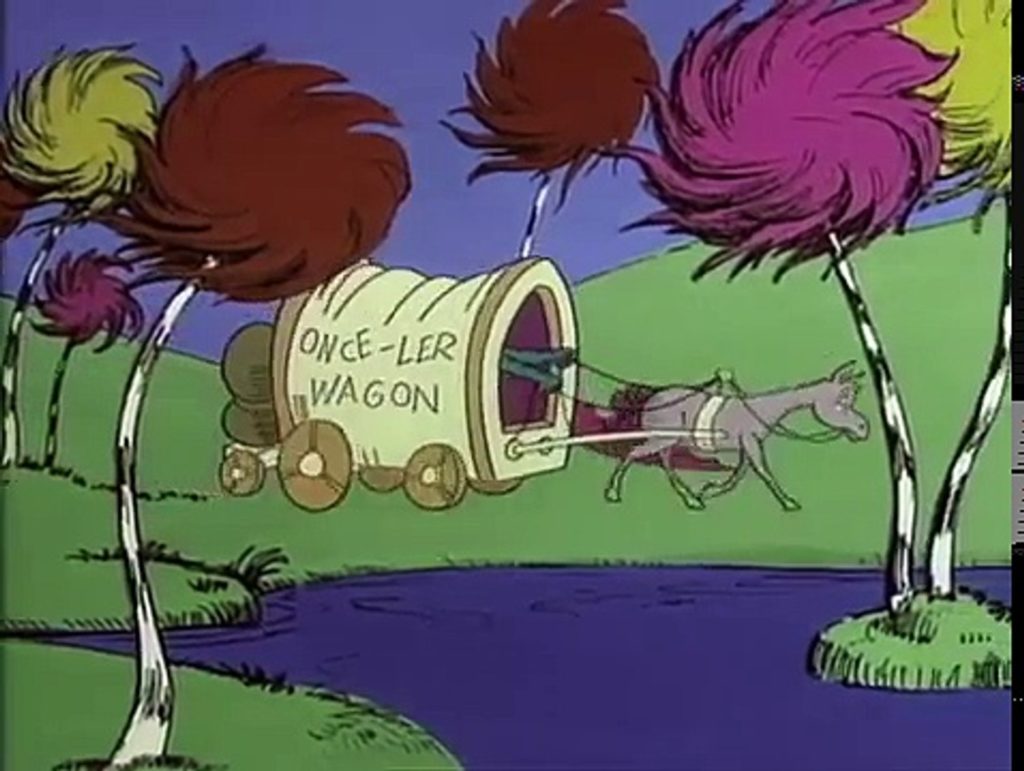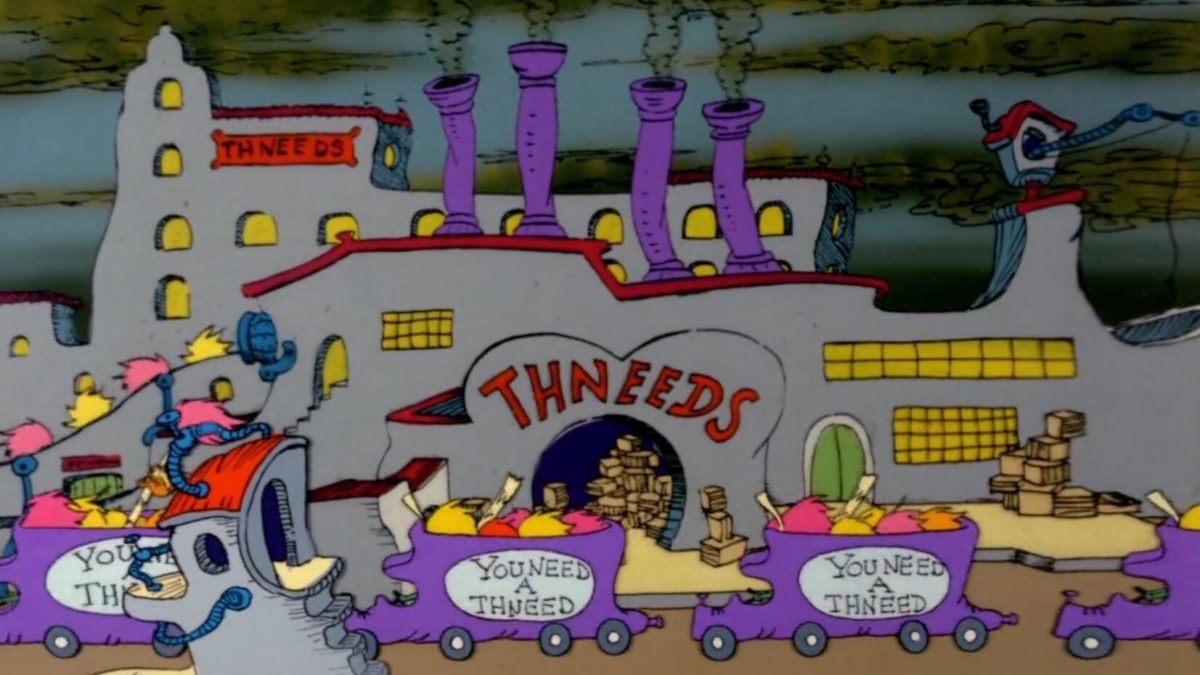It’s a shirt. It’s a sock. It’s a glove. It’s a hat.
Throughout the ‘70s and ‘80s, in the wake of the success of the Chuck Jones adaptation of The Grinch Who Stole Christmas, Dr. Seuss produced and wrote a handful of half-hour TV specials, some based off of his existing books and some originals. These were popular VHS fodder; if you grew up in the ‘90s and your parents ever checked out a video from the library, there’s a pretty good shot you saw one of these at some point.
In 1972, he created an adaptation of his recently-released book, The Lorax. It’s a faithful adaptation of the source, pulling the text and story beats almost verbatim from the book. It also, notably, does a very good job replicating the distinct Dr. Seuss visual design style. There are some especially compelling segments during the “biggering” montage. We see an enterprise grow so baroquely large and angled that it made me think of classic German Expressionism set designs. The mechanical commerce machines in motion are very pleasing to watch, like a well-designed setup in the computer game Factorio.
The color design of the animation is extremely evocative. The colors start fully saturated, resembling the Jones specials, but grow darker and darker a scene at a time as the story grows more grim. The are some downright gloomy compositions in the film’s closing minutes of polluted landscapes and barren wastelands.

I’ve always found this short to be effective and moving; it’s one of the more pedagogical and political of Seuss’s stories, as its whimsy is cut short in favor of anti-capitalist parable. It simply and effectively communicates the dangers of unsustainable consumption and the slippery slope of exploitation in the name of big business and free enterprise.
Beyond the effective animation, the most notable aspect of the production is the music: As a creation of the early 1970s, the soundtrack is drowning in chintzy funk grooves. It adds some unexpected period flavor, but also reduces the quasi-mystical Seussian sense of mystery.
There are lots of fun little details, like the clever ways shots are designed to hide the Onceler except for his hands, and the shots of the Onceler arguing with himself that mimic the visual style of double exposure in early cinema.
The Lorax parable feels more relevant in 2022 than ever as climate change and class disparity remain near the top of headlines. This animated TV special is an enjoyable, well-made adaptation that explore those themes well.
Is It Good?
Good (5/8)
Dan is the founder and head critic of The Goods. Follow Dan on Letterboxd. Join the Discord for updates and discussion.

